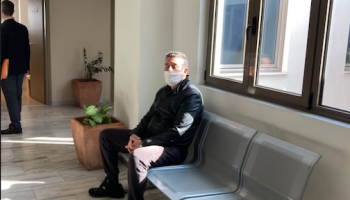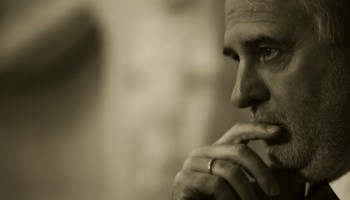Russian authorities accuse Kirill Serebrennikov, the director of the Moscow's avant-garde Gogol Center, of having diverted between 2011 and 2014 more than 68 million rubles (US$ 1.1 million) the government had allocated for a theatrical project called “Platforma.”
Serebrennikov argued back that the funds have been genuinely used to stage productions.
The court rejected his appeal to be freed on bail and granted a request from state prosecutors to detain him until the start of his trial on October 19. The director will be able to attend rehearsals only upon the permission of investigators.
“This is a two-act performance which has been going on in Russia for a long time,” journalist and prominent commentator Sergei Parkhomenko told the The Moscow Times.
"The first act is that everyone is guilty. In Russia anyone who receives state funding is trapped, because it is impossible to comply with all the regulations, and consequently they’re hung up by several hooks,” he explained.
“The second act is such that is that any of these hooks can be pulled at any moment, either to exact bribes or to make a political statement,” he added.
The director faces up to ten years in prison.
Considered as one of Russia's most gifted talents, Serebrennikov is known for his anti-conservative stance. His case has raised a storm of protests among the country's liberal cultural elite who fears it is the first sign of a government crackdown on artistic freedoms.
A large number of prominent cultural figures expressed their support for the director. On Wednesday protesters outside the court shouted “freedom” and “shame.”
Serebrennikov’s lawyer had called several people from Russia’s cultural scene to testify in Serebrennikov's defense, including director Andrei Smirnov and literary figure Irina Prokhorova, who offered to pay his bail.
Writer and director Viktor Shenderovich said the case shows that "no global profile ... or elite will save you from the interests of a repressive state if it decides that it is in its interests to put you on the ground face down."
The Russian culture minister, Vladimir Medinsky, described Serebrennikov’s situation as “sad” and “deeply regrettable,” media reported.
The crackdown against Serebrennikov was launched in May when law enforcement arrested Serebrennikov and three of his former employees, including an accountant who claimed Serebrennikov committed the alleged fraud. Authorities also raided his theater, the Gogol Center.
Then, in July, the Bolshoi Theater canceled the premiere of a ballet about the life of famous dancer Rudolf Nureyev which Serebrennikov directed. The theater claimed that the ballet was not ready yet.
But according to media, it is believed that the theater's decision was related to the fact that Nureyev was homosexual and battled with AIDS.
The case is seen as highly political. Serebrennikov's supporters claim the authorities want to stifle the liberal arts world so as to hamper political criticism ahead of the presidential election scheduled in March next year.






